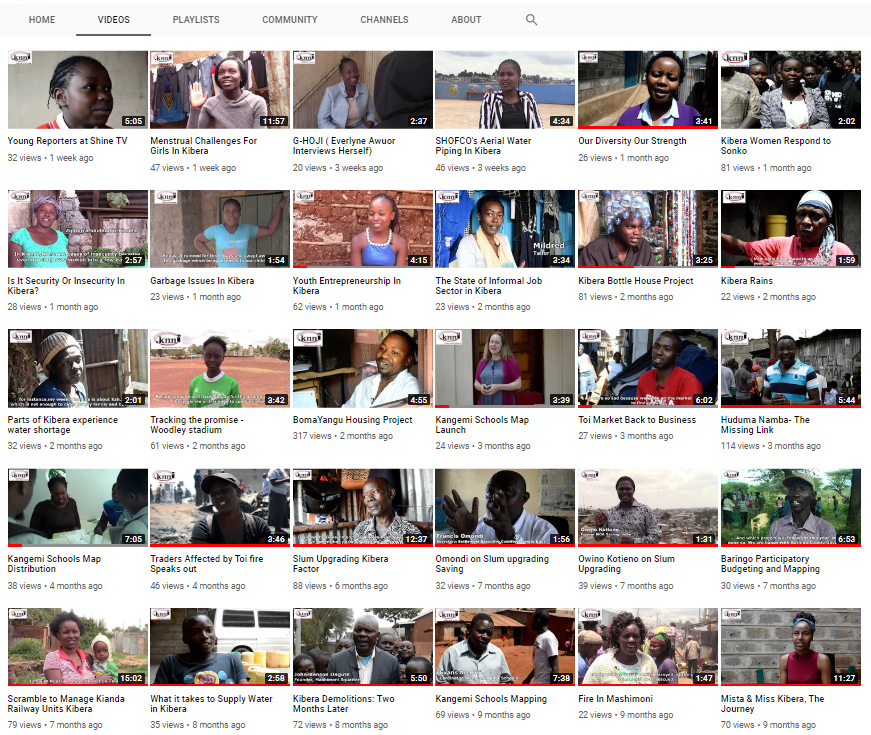Kibera News Network has been training youth from Kibera on citizen journalism and videomaking since March. The group of trainees is composed of 9 youth between 18 and 22 years old, and it’s well gender-balanced (5 females and 4 males). The training has already touched both theoretical and practical topics, such as citizen journalism and reporting, journalism ethics, scriptwriting and creation of news stories, camerawork, video making, editing, and sound.
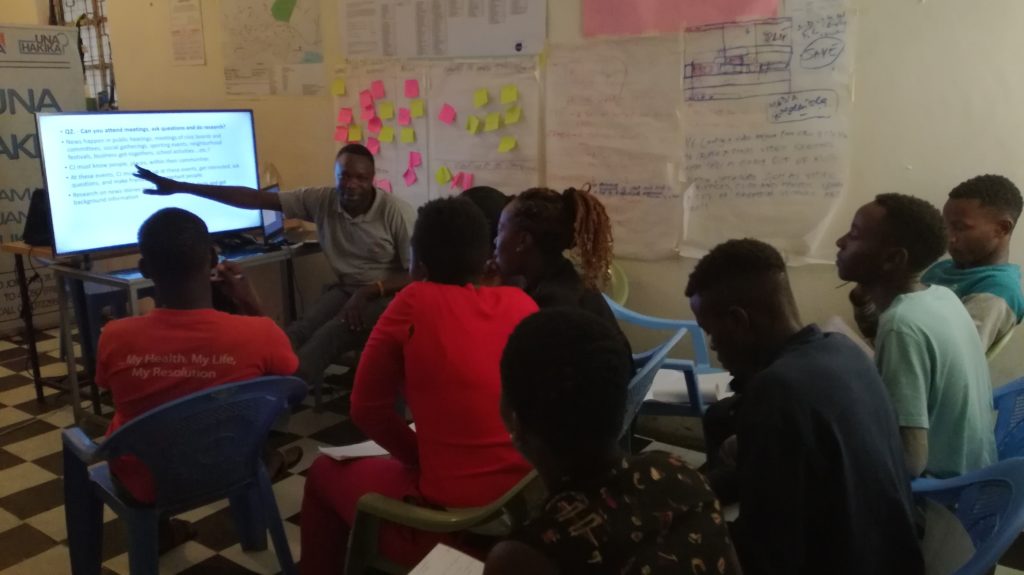
KNN trainees during a theoretical session on citizen journalism
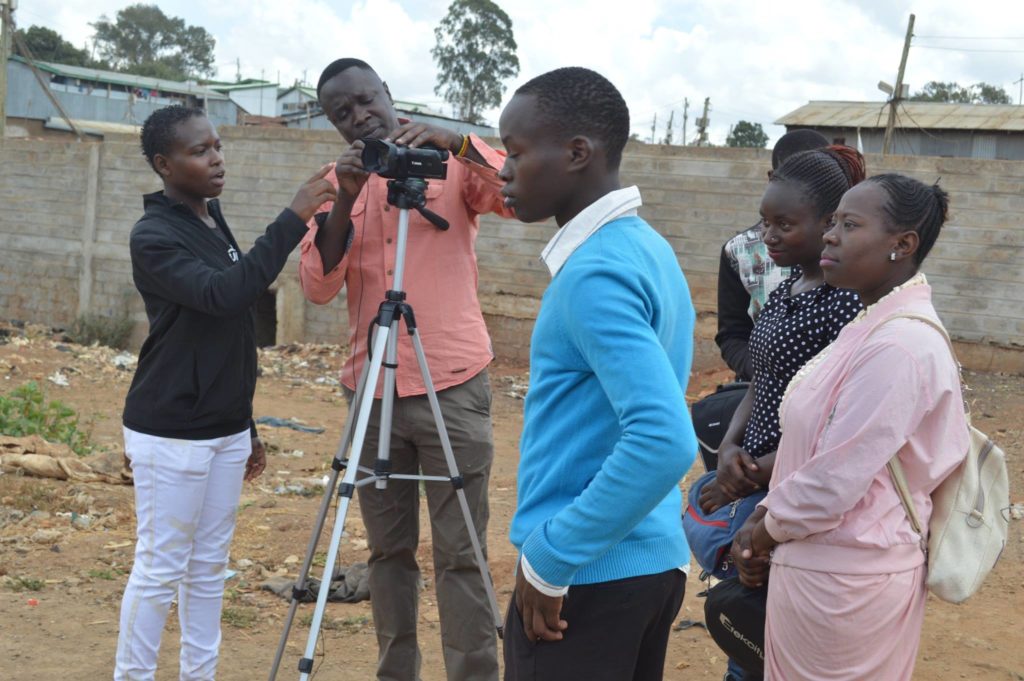
KNN trainees on a field training session
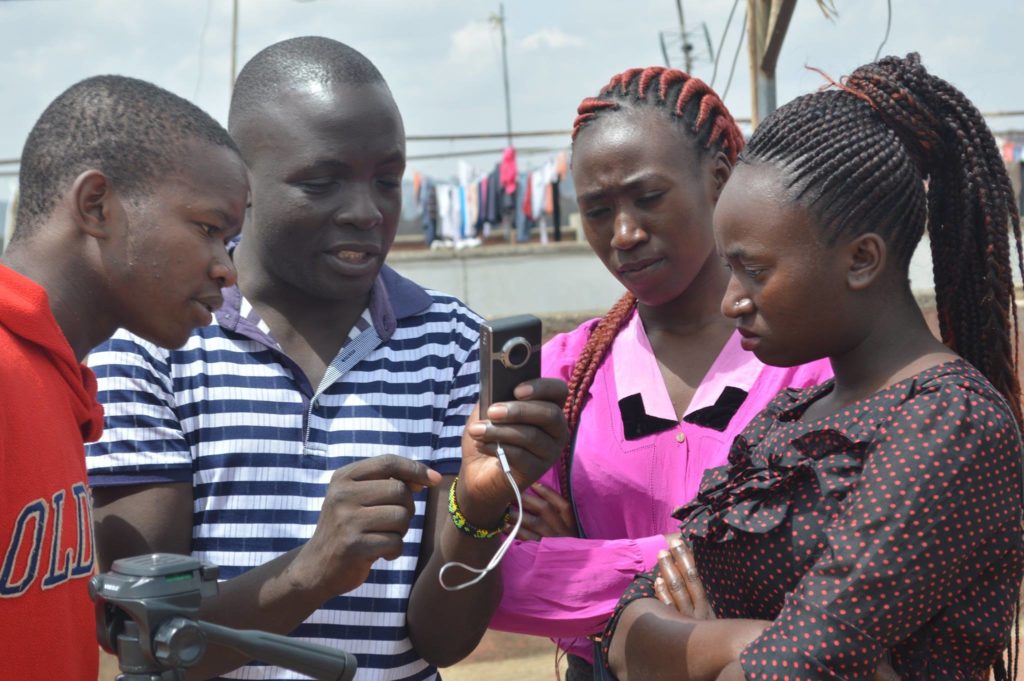
KNN trainees on a field training session
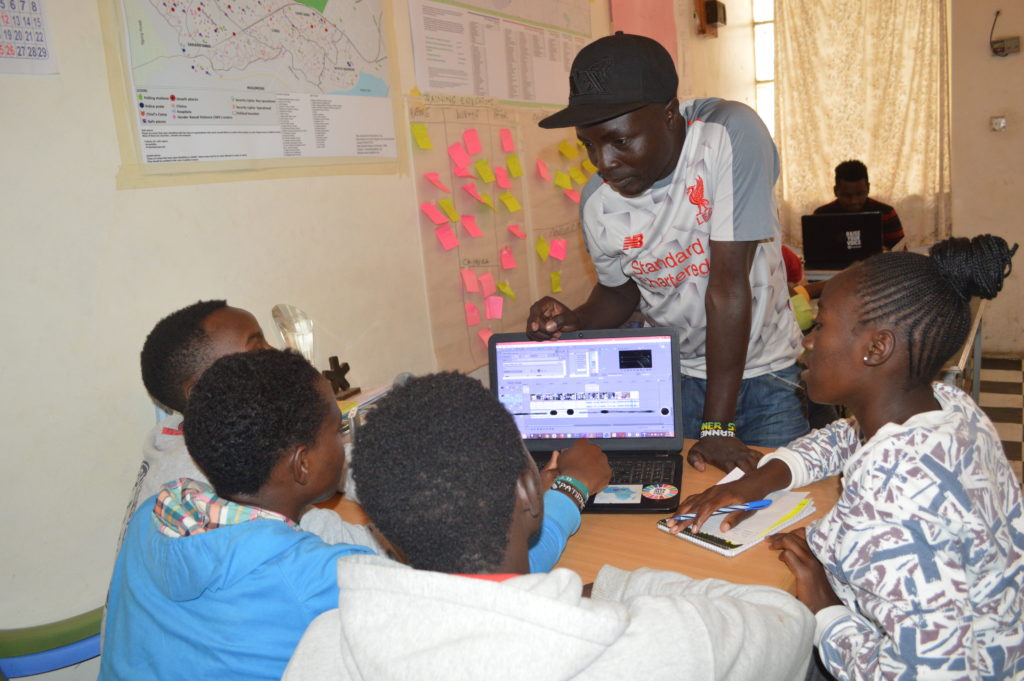
KNN trainees on a video editing session
Through a mixed approach of theoretical training and practical fieldwork, group and individual assignments, and working closely with the trainers, the trainees are now able to develop simple news stories from crafting the idea to the publishing part. From January, KNN has published in total 21 stories, 10 of which were produced entirely by the trainees alone. Out of the total, 3 are the investigative stories that have been published.
With the aim of aligning our mapping work with the reporting work by focusing on the same topics, a group of trainees has incorporated a hard copy of the security map developed by Map Kibera in 2017 in a video on security issues in the slum: “Is it security or insecurity in Kibera?â€. The inclusion of geographic information and maps will therefore continue with the experimentation of new embedding techniques in the videos.
As part of the training, the trainees have been encouraged to participate in external free workshops on photography organized in Nairobi by CANON East Africa. Knowing also the importance of mentorship and inspiration in the education process, they have also received a one-day motivational talk at Map Kibera’s office from Jacob Otieno Omollo, head of photography and senior editor at Standard Media Group, and Stafford Ondego, sports photographer and founder of SportPicha. Mentorship has then continued with insight on investigative journalism with John-Allan Namu, investigative reporter and co-founder of the independent media house Africa Uncensored.
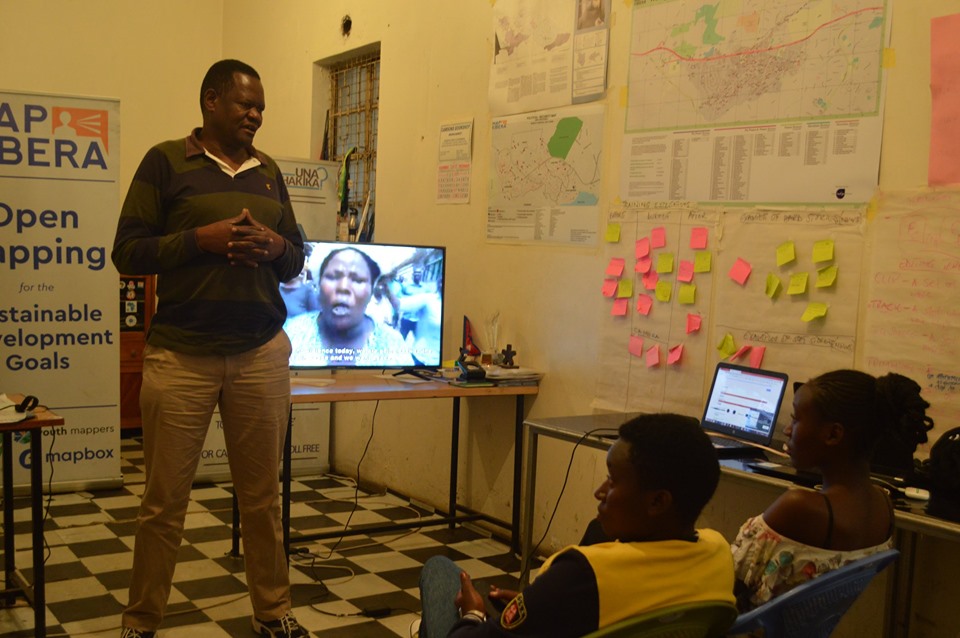
Jacob Otieno Omollo on his mentorship session
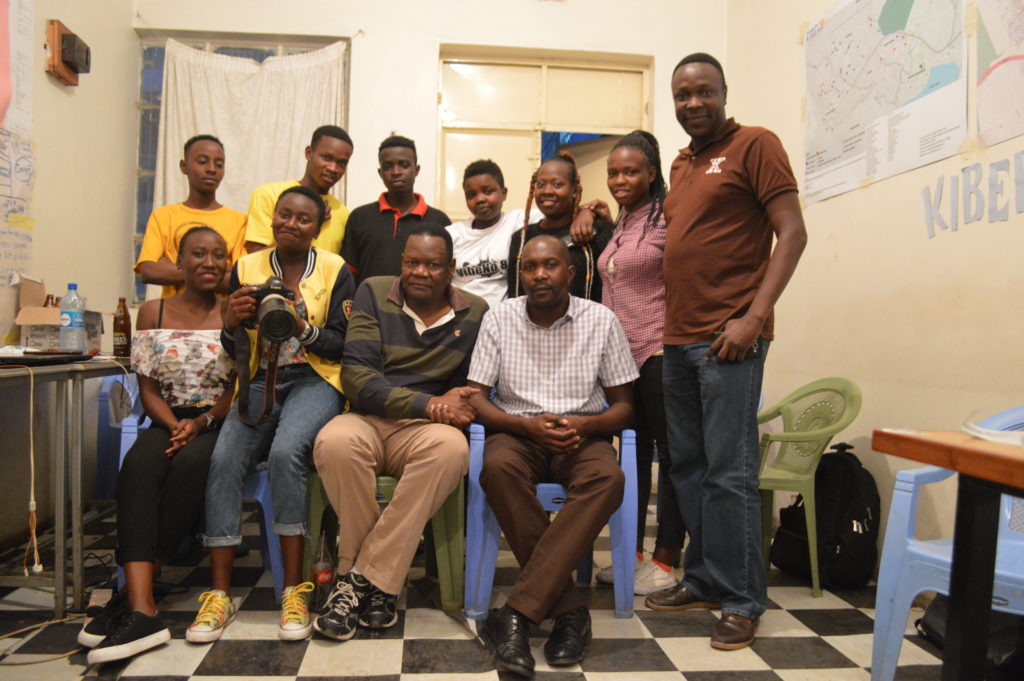
KNN trainees and trainers with the two mentors: Jacob Otieno Omollo and Stafford Ondego.
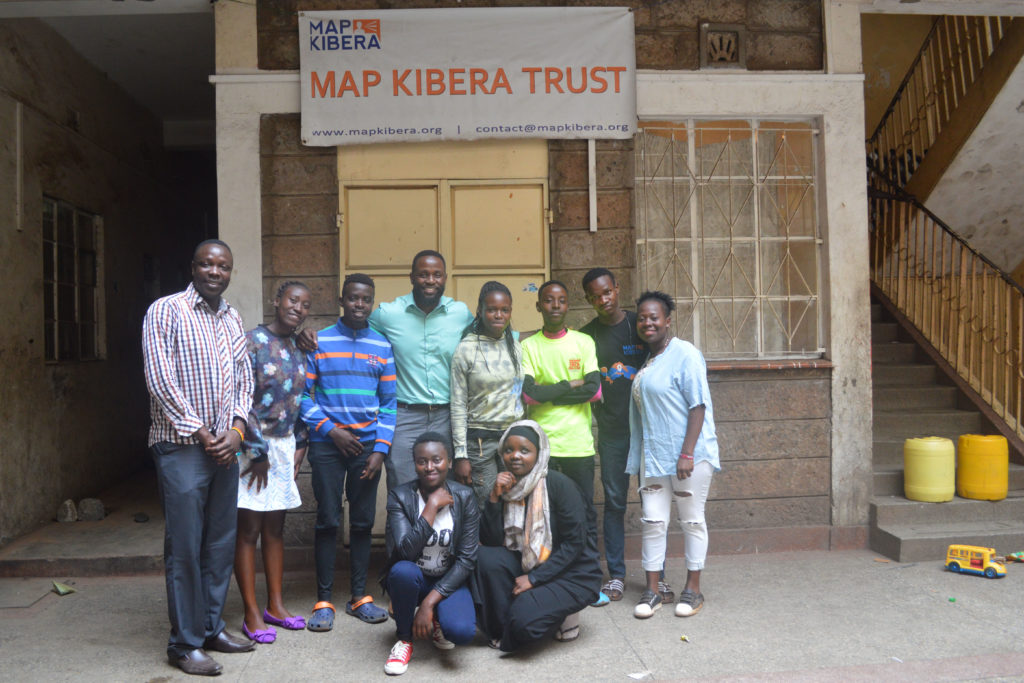
KNN trainees and a trainer with John-Allan Namu.
Moreover, at Map Kibera and KNN, we recognize the value of continuous and periodical assessment of both trainees and trainers. On one hand, the trainers are evaluating both soft skills (teamworking, commitment, general behavior, etc.) and technical competences acquired during the training, through individual assessments and feedback sessions, periodical group reviews of the videos produced by them, and a written exam paired with a field assignment in couples in July. The trainees have been given also a handbook with training material developed by the trainers themselves.
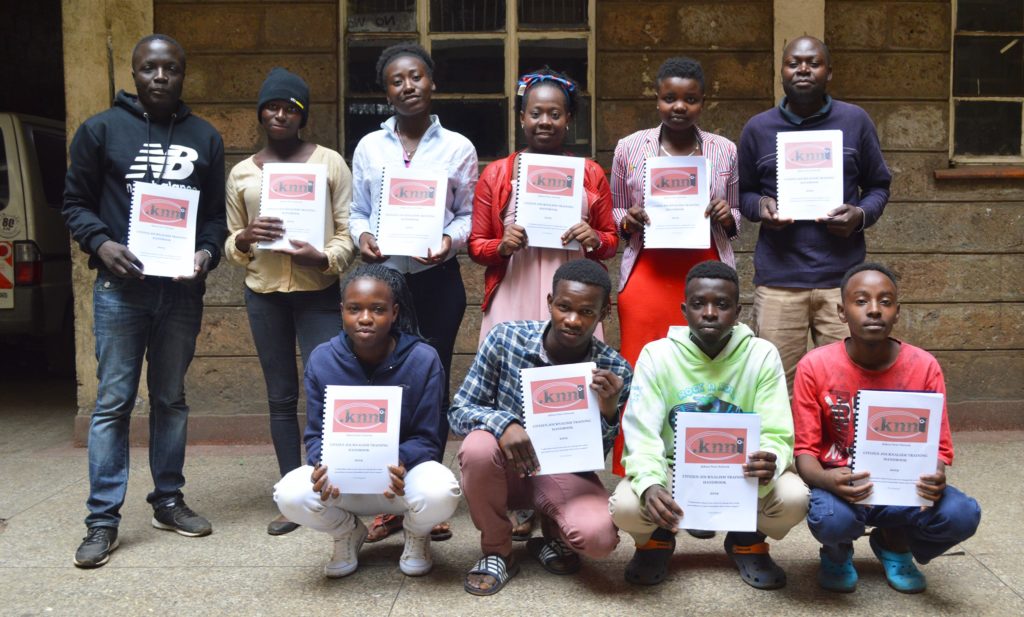
KNN trainees and two trainers with the handbook
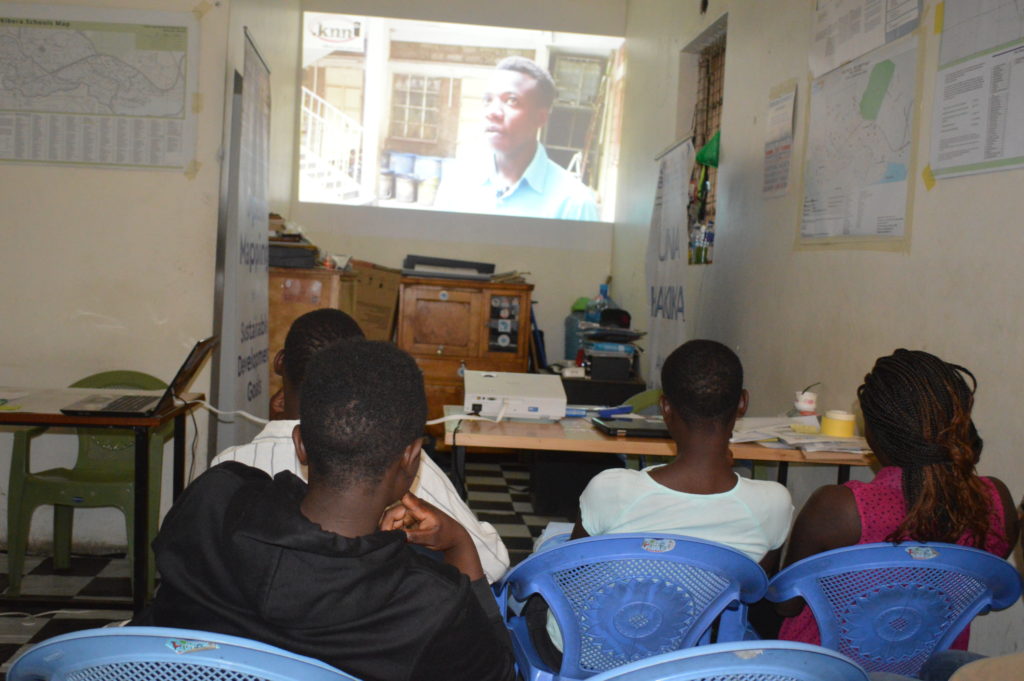
KNN trainees during a review session
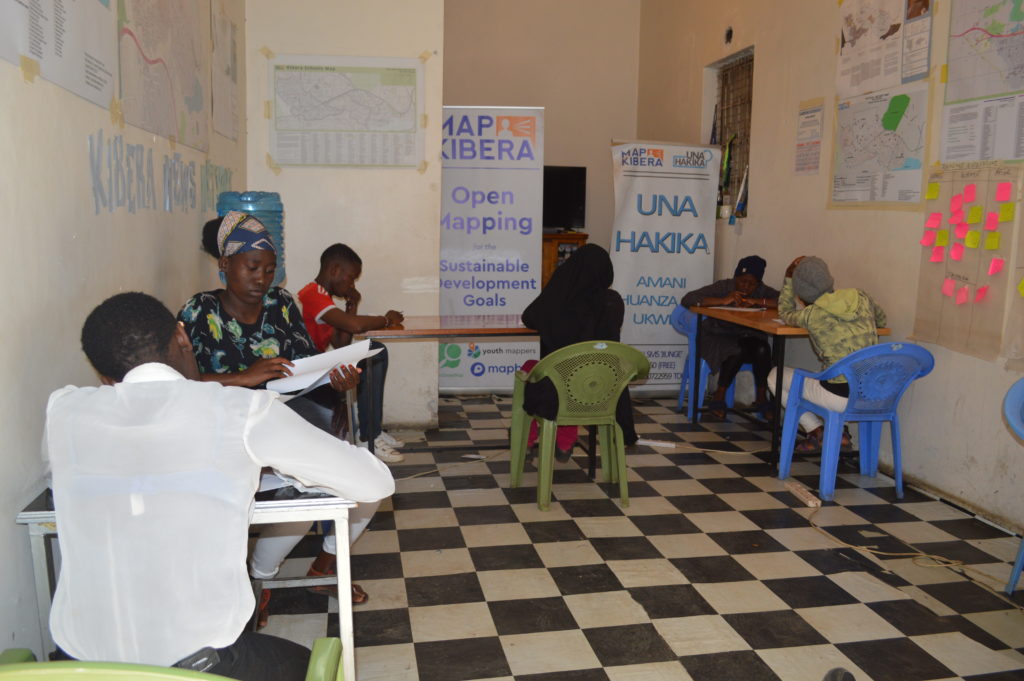
KNN trainees during their theoretical exam
On the other hand, feedback from the trainees have been collected, both in individual and in group sessions, in order to evaluate the trainers, the training approach and methodology.
“I still believe that if your aim is to change the world, journalism is a more immediate short-term weapon.â€
Tom Stoppard
